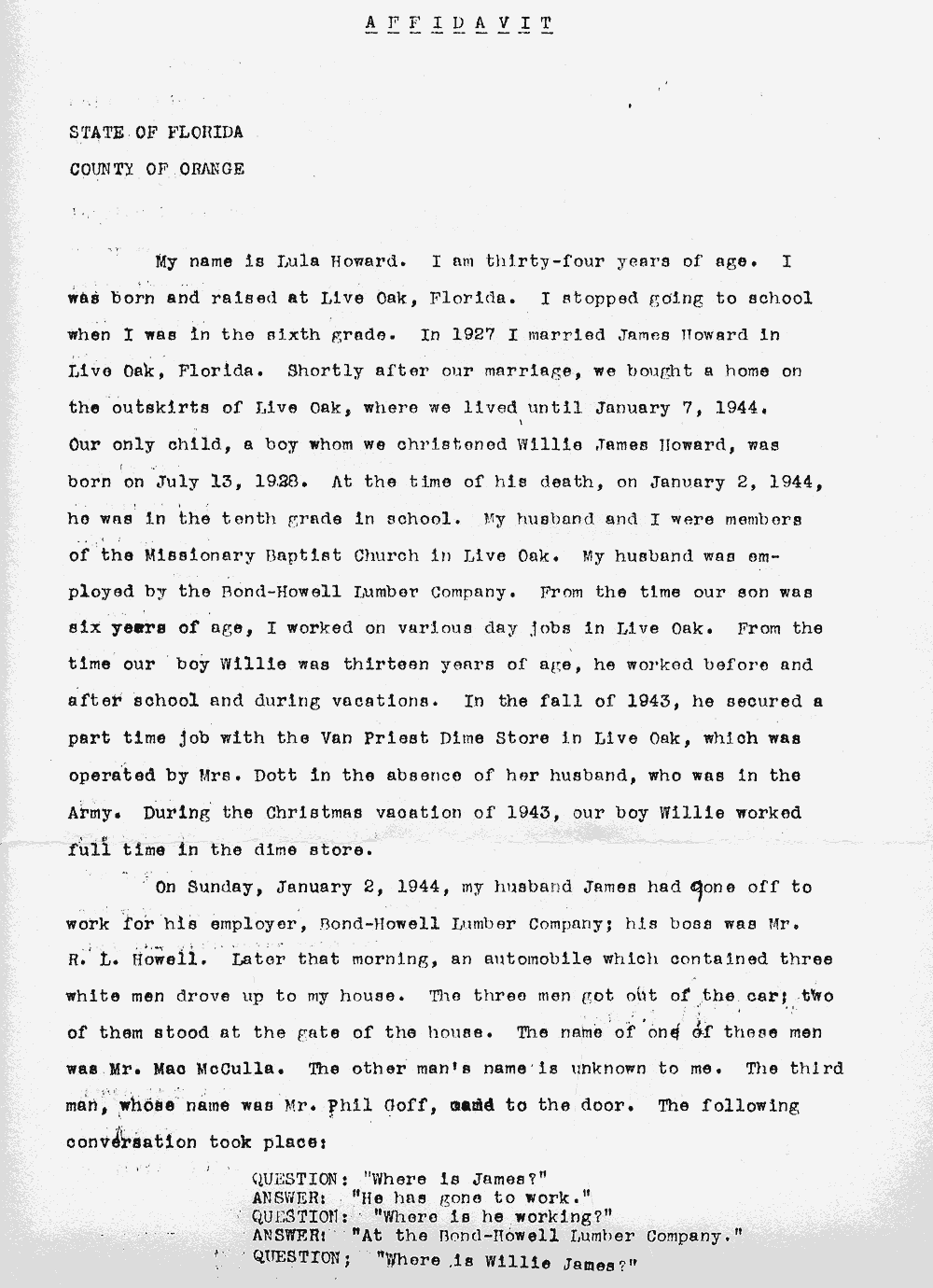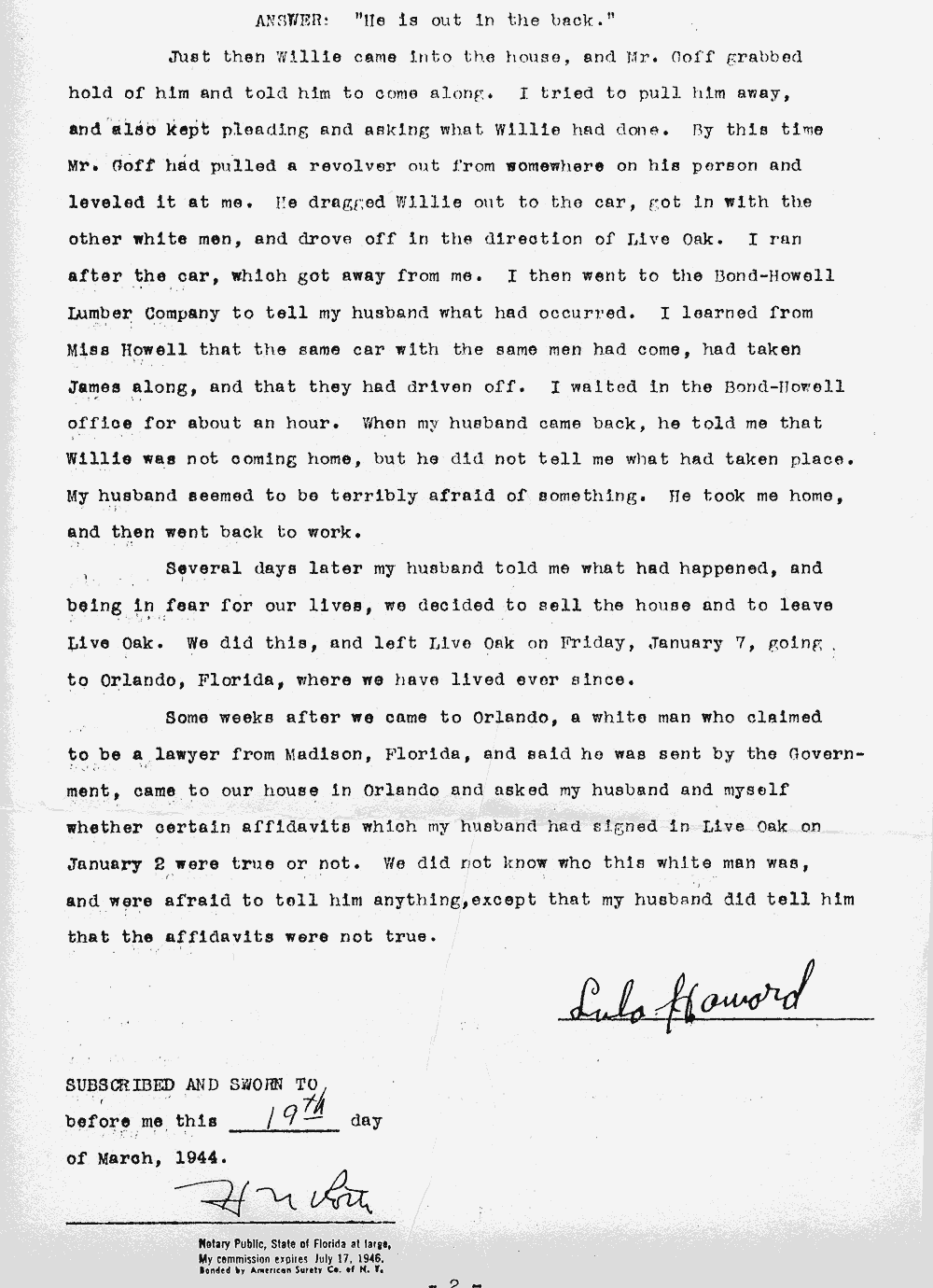On this dayJan 02, 1944
15-Year-Old Boy Lynched in Florida for Sending Love Note
PBS
On January 2, 1944, 15-year-old Willie James Howard, a Black boy, was kidnapped and lynched by three white men in Suwannee County, Florida, after being accused of sending a love note to the daughter of one of the men.
During Christmas, just eight days before, Willie sent cards to all of his co-workers at the Van Priest Dime Store in Live Oak, Florida. Unlike the other cards, Willie’s card to Cynthia Goff, a white store employee, revealed a youthful crush. His greeting expressed hope that white people would someday like Black people and concluded: “I love your name. I love your voice. For a S.H. [sweetheart] you are my choice.”
After reading the card, Cynthia’s father, Phil Goff, brought two friends to the Howard home and demanded to see Willie. Despite his mother’s pleading, the men dragged Willie away and then kidnapped Willie’s father, James Howard, from work. The men drove the father and son to the embankment of the Suwanee River, bound Willie’s hands and feet, stood him at the edge of the water, and told him to either jump or be shot. Willie jumped into the cold water below and drowned while his father was forced to watch at gunpoint. Willie’s dead body was pulled from the river the next day.
Goff and his accomplices later admitted to the local sheriff that they took Willie to the river to punish him, but claimed the teen had become hysterical and jumped into the water unprovoked at the thought of being whipped by his father. Fearful for his own life and the other members of his family, James Howard signed a statement supporting Goff’s account. He and his family fled Live Oak three days later and then shared the story of Willie's lynching. Learn more about the lynching here.
Below is Lula Howard's affidavit (mother of Willie Howard).

About EJI
The Equal Justice Initiative works to end mass incarceration, excessive punishment, and racial inequality.
About this website
Until we confront our history of racial injustice and its legacy, we cannot overcome the racial bias that exists today.
 Learn more
Learn more